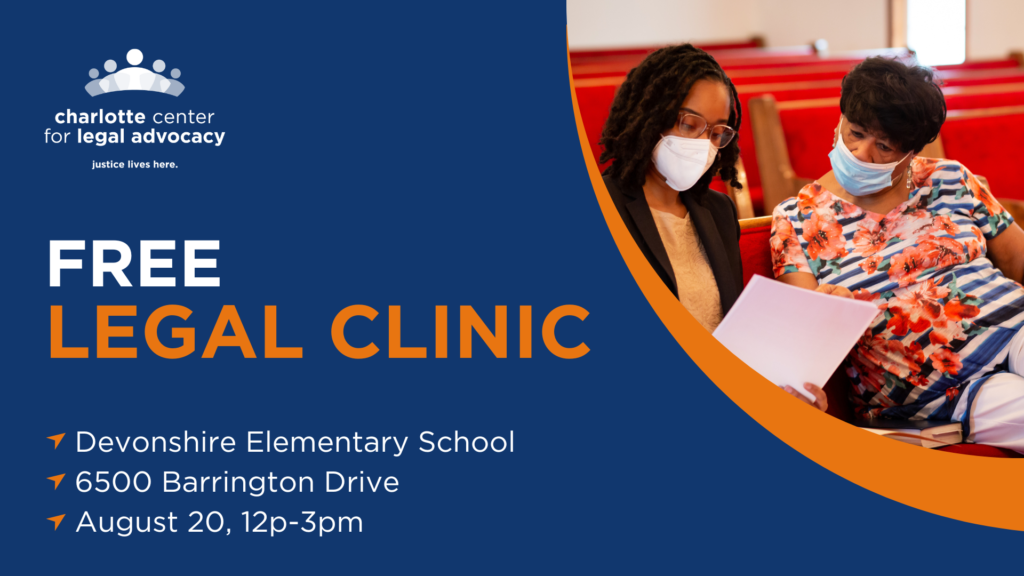A settlement was reached on October 14, 2022, subject to court approval, in Franklin v. Kinsley, formerly known as Hawkins v. Cohen. The federal class action lawsuit was filed in 2017 by Charlotte Center for Legal Advocacy and the National Health Law Program on behalf of Medicaid beneficiaries in North Carolina. In the lawsuit, the Advocacy Center and National Health Law Program alleged that the North Carolina Medicaid agency, along with county Departments of Social Services (DSS), were terminating and reducing Medicaid benefits without considering eligibility under all Medicaid categories. It was alleged that this was done without providing timely and adequate written notice, in violation of federal Medicaid statute and the U.S. Constitution. In the settlement agreement, the North Carolina Medicaid agency agreed to extensive and very detailed changes to its procedures, forms, and notices for redetermining Medicaid eligibility for the 2.8 million North Carolinians currently enrolled in Medicaid.
The settlement comes at a crucial time as the COVID-19 public health emergency is widely expected to end in January 2023. While the public health emergency is in effect, Medicaid beneficiaries are protected from termination or reduction of their health care coverage. If the public health emergency ends in January, eligibility reviews that can trigger reductions or terminations of Medicaid will begin in February. The protections provided to beneficiaries under this settlement will be critical during that process.
“I want to thank state Medicaid officials for working collaboratively with us over many months to reach this agreement, which provides comprehensive and very timely protections for so many low-income and medically needy North Carolinians,” said Doug Sea, Senior Attorney, the Advocacy Center, who led this litigation for Plaintiffs.
Among the many protections for NC Medicaid beneficiaries detailed in the settlement agreement are the following:
- Not have their Medicaid stopped or reduced because the county DSS has not timely redetermined their eligibility;
- To have their eligibility be considered under all categories before their Medicaid is stopped or reduced;
- To have their claim of disability considered prior to termination or reduction of their Medicaid benefits;
- To have their Medicaid continue without them doing anything if DSS has enough information from other sources to show that they are still eligible;
- To ask for and receive assistance from DSS in obtaining any information needed to redetermine their eligibility;
- To be able to reach their county DSS promptly by telephone;
- To receive a written notice before their Medicaid is reduced or terminated that clearly and specifically states why this action will be taken;
- To have their case reopened if they provide the information needed by DSS after their benefits are stopped.
“This agreement provides a national model that we hope other states will follow, especially as they prepare for the end of the Public Health Emergency,” said Jane Perkins, Legal Director of the National Health Law Program, who co-counseled the case with the Advocacy Center. “Once the PHE ends, state Medicaid agencies will be making massive redeterminations of Medicaid eligibility for millions of people who had coverage during the duration of the PHE. Millions of people could improperly lose their insurance coverage if this is not done right. Robust eligibility and redetermination protections, like those just agreed to in North Carolina, will go a long way in ensuring that eligible people do not lose access to care.”
Before the agreement can be approved, the court must hold a fairness hearing to allow class members to object. That hearing is scheduled for January 13, 2023 at 11:00am at the federal courthouse in New Bern, North Carolina.
If Medicaid beneficiaries in North Carolina have any questions about their rights, they may contact the attorneys at Charlotte Center for Legal Advocacy. They may call toll-free at 1-800-936-4971. They can also send the lawyers an email at Hawkinsinfo@charlottelegaladvocacy.org.
About Charlotte Center for Legal Advocacy
Charlotte Center for Legal Advocacy provides those in need with information, advice, and advocacy in consumer protection, home preservation, health care access and public benefits, immigration, tax assistance, and more. Our mission is to pursue justice for those in need. Our vision is to build a just community, where all people are treated fairly and have access to legal representation to meet their basic human needs of safety, economic security, and stability. Learn more: charlottelegaladvocacy.org.
About National Health Law Program
The National Health Law Program, founded in 1969, protects and advances health rights of low-income and underserved individuals and families. We advocate, educate and litigate at the federal and state levels to advance health and civil rights in the U.S. www.healthlaw.org
Legal Documents
Settlement Agreement
Settlement Agreement Regarding Attorneys Fees
Attorney Timesheet Summary
Notice to Class regarding Attorney’s Fees Settlement
Notice of Rights Under Settlement Agreement
